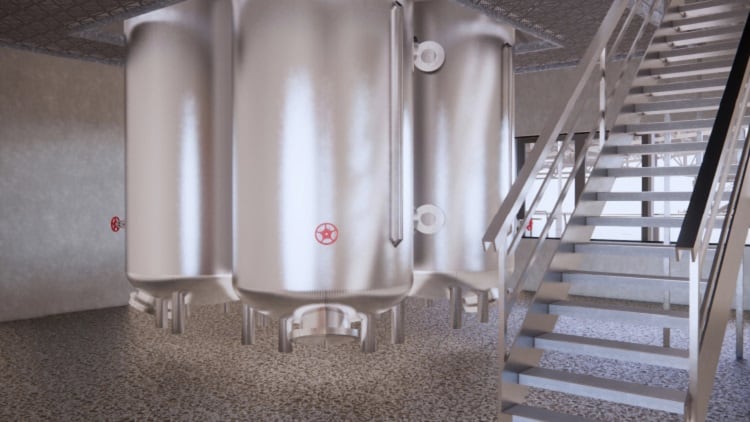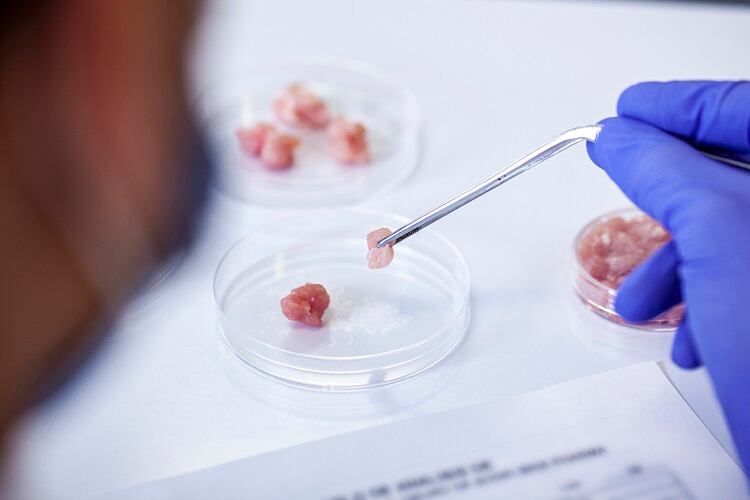Cultivated meat, while not commercially available anywhere except Singapore, is a market with considerable capital behind it, with strong public and private investment everywhere from Israel to China.
Newform Foods, a South African company, wants to bring cultivated meat to Africa. Its new demonstration facility, it claims, will enable producers to test out using cultivated meat in their products with a lower cost than they may otherwise have incurred. It will enable them to curate a cell line, develop a prototype, and scale the process.
“The aim is to secure partnerships with companies looking to expand their offering,” Brett Thompson, CEO at Newform Foods, told FoodNavigator.
“Since launching our bioproduction platform, we have already seen a drastic reduction in costs, so when our meat becomes available to more people, the prices will compete with conventional meat products. Once we’ve demonstrated what our bioproduction platform can achieve at scale to the local and global food industry, we are confident we will be able to deliver affordable, delicious cultivated animal products to everyone.”
The plant will initially focus on cultivated beef and lamb, but will expand to other species in the future.
Regulatory challenges and opportunities
Like all cultivated meat companies, Newform Foods must contend with regulation. However, according to Tasneem Karodia, Newform Foods’ COO, South Africa’s regulatory landscape is very different from that of the US and EU.
The southern African country has “a comparatively lighter regulatory burden in terms of the hurdles but not in terms of health and safety compared to global standards,” Karodia FoodNavigator. “South Africa's relatively streamlined approach reflects its commitment to fostering technological advancements while ensuring consumer safety and ethical considerations.”

There is little in the way of an existing framework to guide regulators. “In terms of existing legislation, there is nothing that specifically governs this product, rather, it is about understanding where this would fit in terms of current frameworks.
“Encouragingly, positive dialogues have been initiated with the Department of Agriculture, Land Reform and Rural Development (DALRRD), who are responsible for the main legislation, raising optimism about the prospects of introducing cultivated meat into the local market. We are working together on this to ensure we are able to provide this product on the market.”
Preventing energy intensity
The aim of cultivated meat is to be more sustainable than regular meat, cutting down the need for animal agriculture that eats up so much arable cropland. Thus, it’s important that its production does not preclude sustainability in other ways, and that its plants are not too energy intensive.
A recent study (not yet peer reviewed) by the University of California, Davis suggested that due to the highly energy-intensive methods that cultivated meat is often produced, it could be between four and 25 times worse for global warming potential. Newform Foods, however, strive for low energy-intensity.
“We are using several strategies to improve process efficiency and reduce resource consumption across our plant,” Karodia told us. “We are looking at energy use at scale and are aiming to integrate energy-efficient technologies within our processes by incorporating renewable energy and using machine learning techniques to better understand our process performance and allow us to make data-driven decisions.”
Will consumers want it?
While meat consumption falls in much of Europe, in South Africa it is still often seen as a status symbol, linked as it is to wealth. A recent study showed that meat is culturally integral to many forms of socialisation as well.
However, this does not mean that cultivated meat has no market in South Africa. “We started our company as a proudly African organisation and that will always be at the core of our business,” Thompson told us.
“According to research done by an NGO in Cape Town called Credence Institute, 53% of profiled participants would pay a higher price for cultivated meat when it’s available, which is a positive data point.” The study, where the Credence Institute partnered with North Mountain Consulting Group, found a ‘high level’ of interest in cultivated meat in the South African population.





